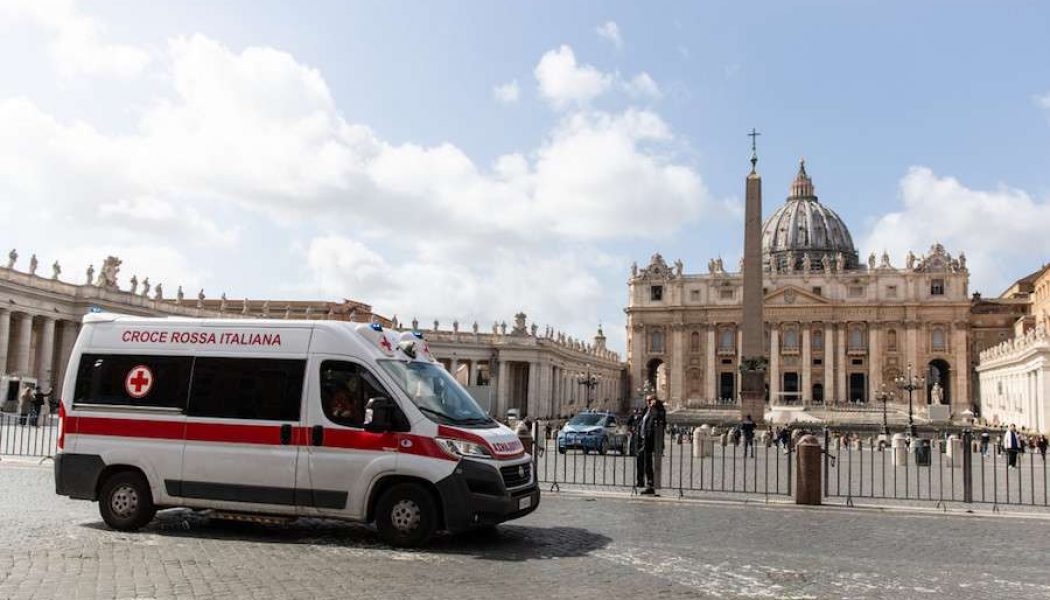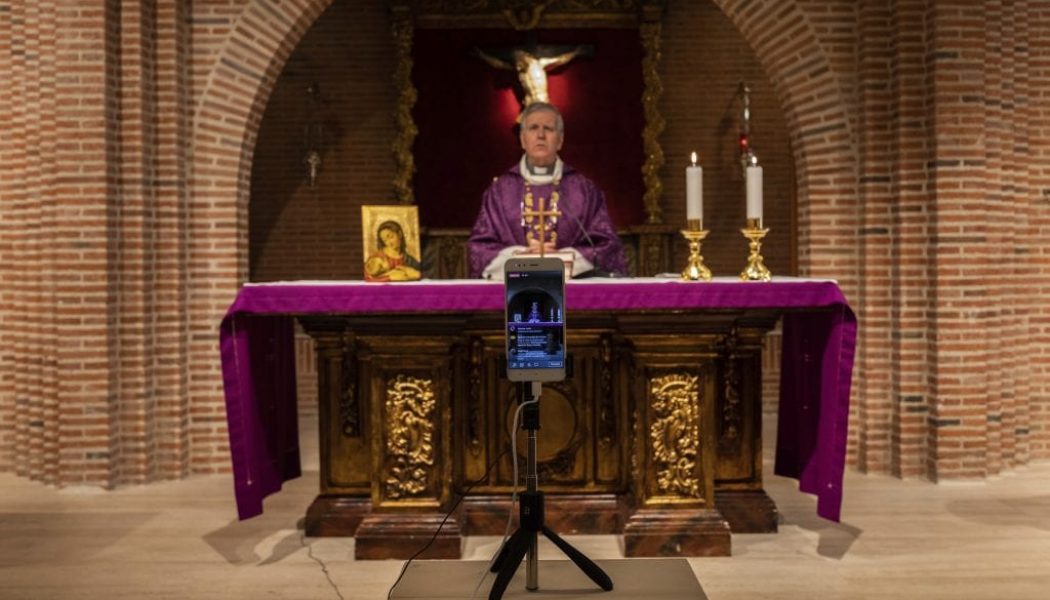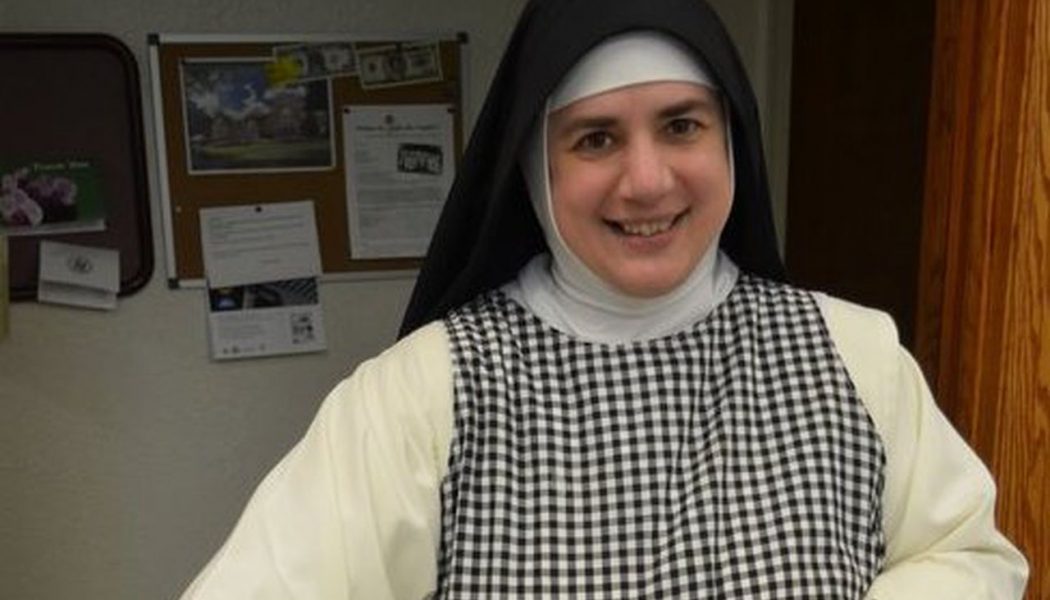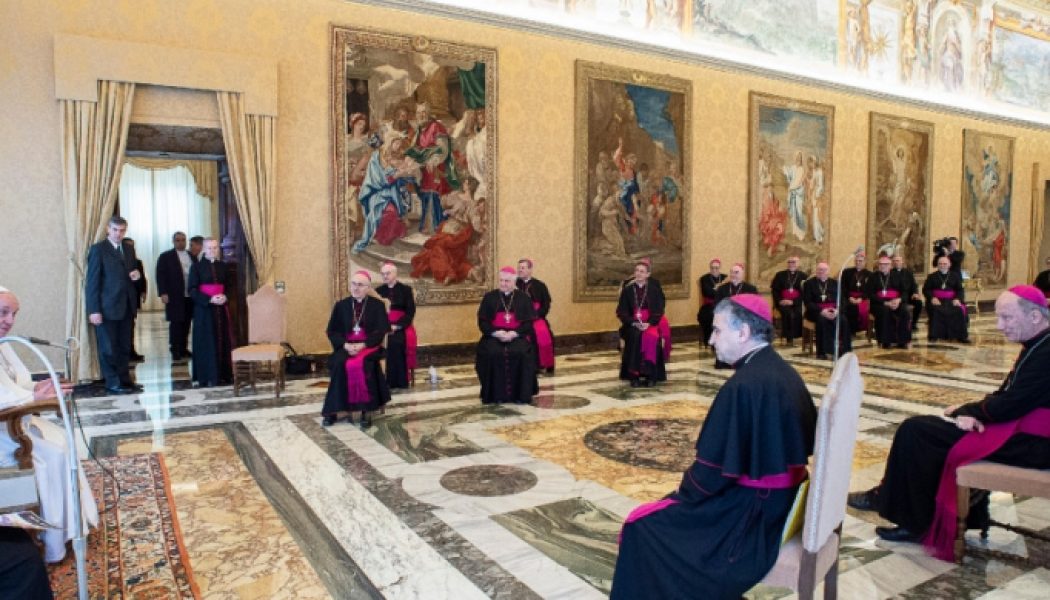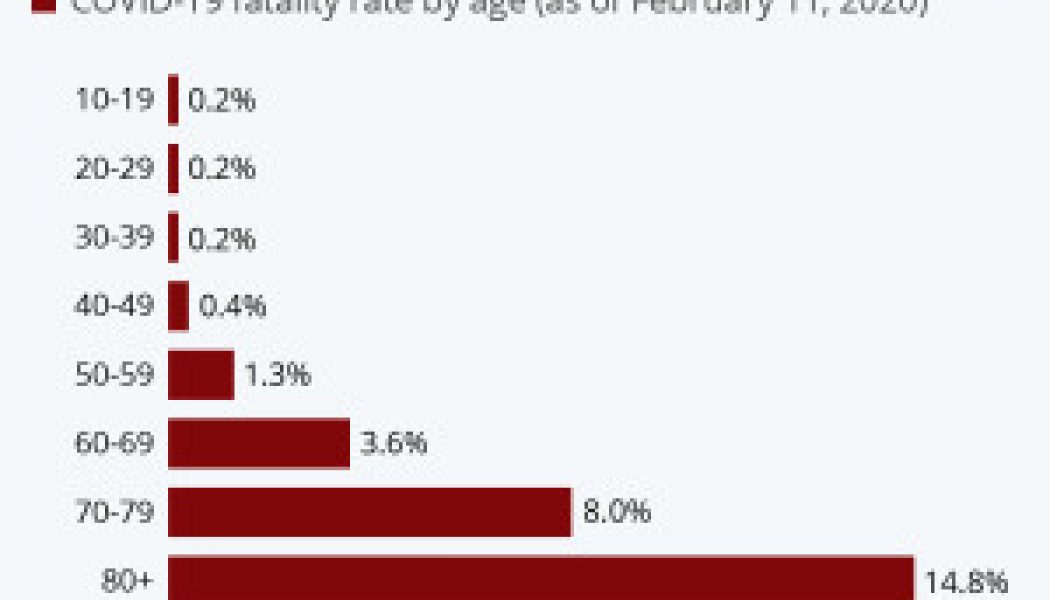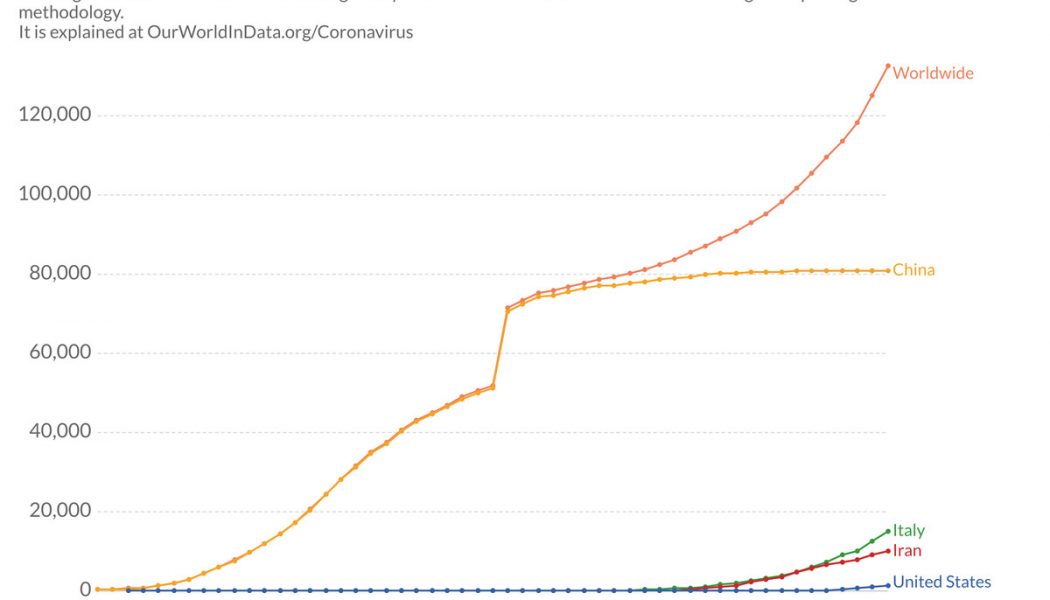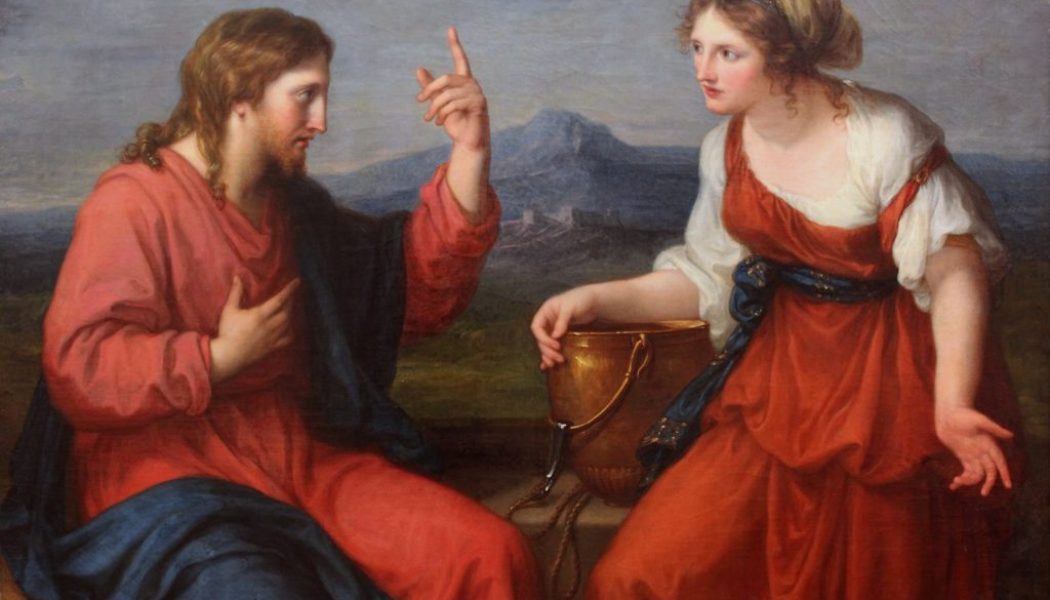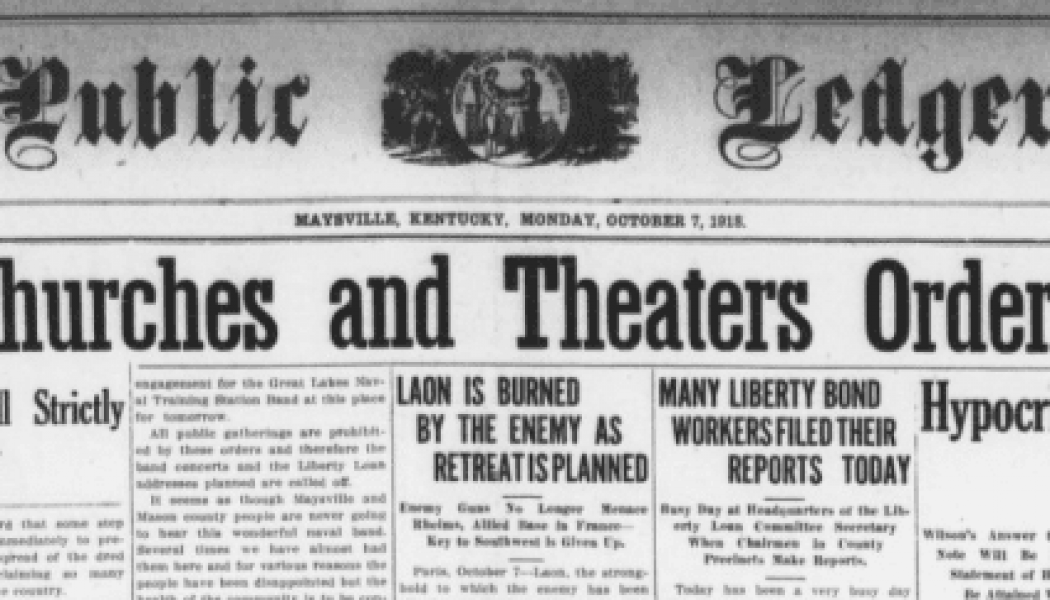Discover
I have never seen something quite like what we are experiencing now. Here are 5 hard truths that will set you free…..
Given our current profound troubles, it occurs to me to republish an article from some years back. Like most, I have been through difficulties in my life: violent storms, an earthquake, and the loss of several loved ones. But I have never seen something quite like what we are experiencing now. It is unclear how long things will last, and the restrictions get more severe by the day. With all that in mind, I think it is important to recall the five hard truths that follow. I hope you won’t think I am trying to pour salt in our collective wounds. The message of this post is this: accepting that life has sufferings and setback is a freeing notion. Acceptance is a middle ground between resignation and approval. To accept something is be willing to pick it up and carry it for now, like a cross. ...
I cried when Mass was canceled…
Masses are being cancelled. Catholics are suddenly unable to receive the Eucharist – and in certain places, even Confession. It comes as a hard blow. When I mention how sad this makes me on social media, many people respond by trying to “put it in perspective.” They expound on the fact that the cancellation will save lives. They bring up the point that many Catholics throughout history – and even today – have been unable to attend Mass regularly or receive the Eucharist for great lengths of time. They brush it off by saying: just watch Mass online. I understand all that. I understand that the bishops are trying their best to make prudent decisions for their flock. I understand that we must accept and be obedient to their guidance. But we just lost the Sacraments. It’s okay to feel sorrow. ...
In Italy, at least 10 priests are dead of coronavirus, and 1 bishop is recovering…
Rome, Italy, Mar 16, 2020 / 03:20 pm (CNA).- At least ten priests have died in Italy after contracting COVID-19. More than half of them were from the Diocese of Bergamo, a town outside of Milan in Lombardy. The bishop of Bergamo, the Italian diocese hardest hit by the coronavirus outbreak, said Monday that the 20 priests in his diocese who have been hospitalized after contracting coronavirus have shown considerable improvement and six others have died. “The number of priests who have died this week and that of those who are still in a particularly serious situation is very high,” Bishop Francesco Beschi of Bergamo said in an Italian radio interview March 16. “We are living this pain by sharing it with that of our communities together with the number of infected people, the sick and a high ...
In John XXIII’s hometown of Bergamo, six priests have died from the coronavirus…
ROSARIO, ARGENTINA – At the heart of the European coronavirus crisis in northern Italy’s city of Bergamo, six Catholic priests have died during the past week from the disease and, as of Sunday, over 20 priests were hospitalized. The Bishop of Bergamo, Francesco Beschi, confirmed this numbers speaking with the Italian TV news network Rainews24. “Our priests are many, and numerous are those who have exposed themselves [to the virus] to be close to their community,” he said Sunday. “Their illness is an evident sign of closeness, a painful sign of closeness and sharing in the suffering.” Beschi also said that no one is “exempt” during this “extremely painful trial.” Bergamo today is the Italian province with the highest number of people who’ve fallen ill, with 3,416 cases as of Sunday amid Ita...
I’m a cloistered nun and I’ve been social distancing for 29 years. Here are tips for staying home amid coronavirus fears…..
For the past 29 years, I’ve chosen to practice social distancing. Of course, I and the 17 other nuns I live with don’t call it that. We are formally called cloistered sisters, meaning we never leave our walled-off monastery in Summit except for doctors’ visits or perhaps shopping for a specific item. We don’t go to parties or weddings or out to eat with friends. I often go months without leaving our 8-acre home. The coronavirus is forcing many people in New Jersey and across the world to stay home, limit outside contact — and in a way, start living life like cloistered nuns. Of course, this virus is not good. Sickness never is. And I understand that this sudden shift in our society is frightening. As someone who has lived a life of separation, I’d like to share from my experience how you c...
French bishop tests positive for coronavirus after Vatican visit…
Pope Francis received in a private audience members of the Bishops’ Conference of France during their “Ad Limina” visit, March 9, 2020. They were seated one meter apart, as a precaution, as Italy continues to fight the spread of the coronavirus. (Vatican Media.) “May this time of trial be an opportunity to pray, especially for the sick, frail, and for health personnel,” Bishop Delmas said. Courtney Mares/CNA. VATICAN CITY — A French bishop who visited the Vatican last week has tested positive for coronavirus, his diocese announced Monday. Bishop Emmanuel Delmas of Angers tested positive for COVID-19 on the evening of March 15. The Diocese of Angers said in a statement March 16 that the bishop first experienced symptoms during his time in Rome. Bishop Delmas was ...
Remember: Our priests are offering Mass daily for the whole world, and will bring Confession, Anointing and Viaticum for as long as they are able…
Coronavirus is a Serious Concern The Wuhan Coronavirus is very contagious and estimated by Dr. Anthony S. Fauci, head of the National Institute of Allergy and Infectious Diseases, to be ten times deadlier than the seasonal flu. This new pandemic poses some small danger to the young but puts the elderly and those with underlying health issues at much graver risk. In Italy, where 6% of those confirmed to be infected with Coronavirus have died thus far, the Italian Catholic bishops have suspended all public Masses in their churches until at least April 3rd. And in Washington State, where 31 people have died, the Catholic Archdiocese of Seattle has suspended all public Masses indefinitely. Due to current limitations in the United States’ ability to test for the Coronavius, it is unclear how pe...
Please join me in this novena for a swift end to the spread of COVID-19…
By Stephen D. Minnis, March 13, 2020 The Coronavirus pandemic has been top of mind for days now. Benedictines live by the motto, “Pray and Work.” Prayer can never be our only response to a problem, but we should never leave it out, either. At Benedictine College, we are working hard on this problem, coordinating efforts with Kansas health officials, Atchison authorities, and an interdisciplinary Task Force that has been meeting daily. I thought now would be a good time to take a breath and do what we as a community do best — call upon Our Lady’s intercession for a swift end to the spread of the virus and for her maternal protection for all. Therefore, please join me in this Novena to Our Lady of Monte Berico for a swift end to the spread of COVID-19 and for her maternal protection of ...
No “large events and mass gatherings” of 50+ people for next 2 months, says CDC…
This interim guidance is intended for organizers and staff responsible for planning mass gatherings or large community events in the United States. A mass gathering is a planned or spontaneous event with a large number of people in attendance that could strain the planning and response resources of the community hosting the event, such as a concert, festival, conference, or sporting event. Guidance specific to schools and childcare settings, institutions of higher education, and community- and faith-based organizations can be found on CDC’s website focused on prevention COVID-19 spread in communities. COVID-19 is an emerging respiratory disease and there is more to learn about its transmission, clinical course, and populations at increased risk of disease and complications (see How COVID-1...
9 coronavirus pandemic charts everyone should see…
The outbreak of Covid-19, a coronavirus-caused illness that originated in Wuhan, China, and has since spread to most of the world, is one of the most serious public health crises in decades. It has spread far wider than Ebola did in 2014, and the World Health Organization has designated it a pandemic. Johns Hopkins’s tracker is worth bookmarking with case number counts in the US and worldwide as the crisis progresses. The situation on the ground is evolving incredibly quickly, and it’s impossible to synthesize everything we know into clean, intelligible charts. But we do know a fair bit about how bad the outbreak is, what the disease does, and what controlling and ultimately ending the outbreak will look like. With that in mind, here are nine charts that help explain the Covid-19 coronavir...
Just a little talk with Jesus makes it right…
As we examine the Gospel for this weekend’s Mass we do well to understand that is about human desires and how the Lord reaches us through them. Prior to examining the text in detail, let’s consider a few things: What it is that really makes you happy? We desire so many things: food, water, shelter, clothing, and creature comforts. We long for affection, peace, and a sense of belonging. Sometimes we want stability and simplicity, at others we yearn for change and variety. Our hearts are a sea of desires, wishes, and longings. Today’s Gospel says that a woman went to the well to draw water. She represents each one of us and her desire for water is symbolic of all our desires. In reality, your desires are infinite. Can you remember a time when you were ever entirely satisfied, when you wanted...
What the 1918 influenza pandemic meant for American churches…
“With all the unavoidable news right now about disease and epidemics,” Philip wrote here last Friday, “it’s an obvious temptation to look back to past eras to see how they coped with such things, culturally as well as medically.” Indeed, as I get more and more emails from my employer, our kids’ school, and our city about coronavirus/COVID-19, I’ve certainly been tempted to brush up on my limited knowledge of the history of disease. Like Philip, I’ve thought a lot about 1918, and the influenza pandemic that killed 50 million people around the world, including 675,000 in this country. But while he considered how the pandemic — coinciding with the last year of World War I — inspired apocalyptic themes in film and literature, I spent some time this weekend revisiting one of my favorite digital...




